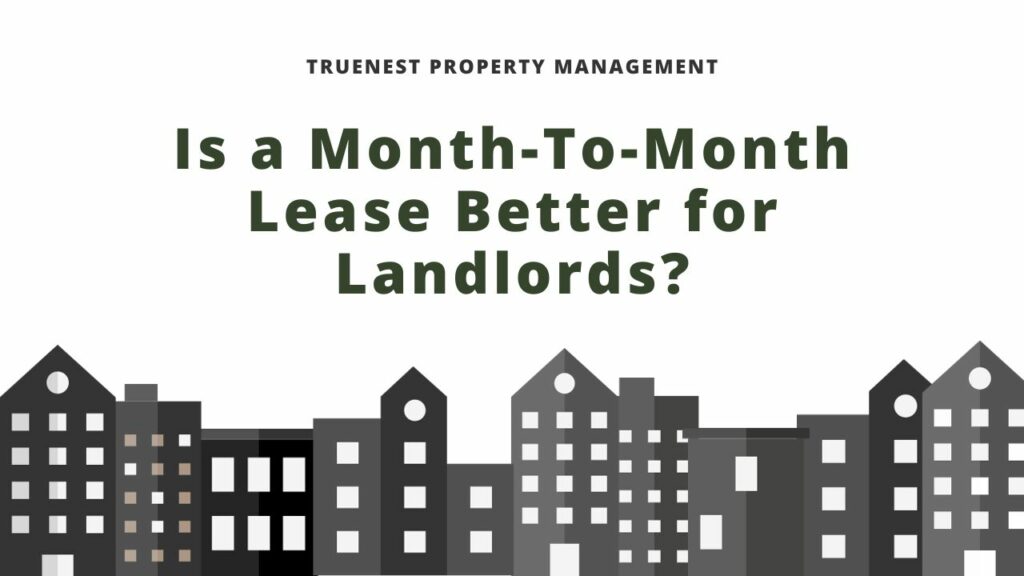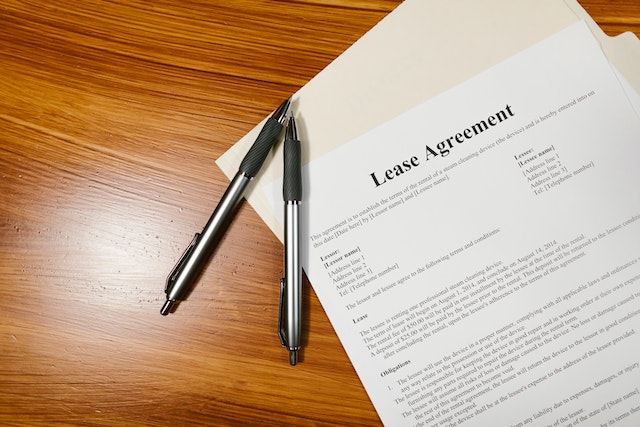Is a Month-To-Month Lease Better for Landlords?

In the ever-changing real estate landscape, landlords may often find themselves assessing the benefits and drawbacks of various lease types to improve their property management approaches. The month-to-month lease is one such option that has grown in popularity when renting out homes.
To help, the team at TrueNest Property Management put together this article; it thoroughly examines the benefits and drawbacks of month-to-month leases, casting light on whether such flexible arrangements are more suitable for your rental properties.
What Is a Month-To-Month Lease?
As the name implies, a month-to-month lease is a rental arrangement that allows renters to occupy a property monthly. A month-to-month lease, as opposed to a regular fixed-term lease, which usually lasts 6 months or a year, automatically renews at the end of each month until either party decides to end the lease.
Why Might Landlords Choose a Month-To-Month Lease?
Landlords may prefer month-to-month leases for a variety of reasons, the most important of which is to give flexibility to both parties involved.
A month-to-month lease provides landlords with the opportunity to respond quickly to changing market conditions. The ability to adjust rental rates or terms on a monthly basis ensures that landlords can stay competitive and adapt to fluctuations in the local housing market.

This flexibility also enables landlords to cater to a diverse tenant base, including those seeking short-term housing solutions. Additionally, month-to-month leases simplify the termination process, requiring only a 30-day notice from either party, facilitating a smoother transition if either the landlord or the tenant decides to end the lease.
This arrangement can be advantageous when the landlord or renter prefers a short-term commitment or when the property is located in a high-demand market with quickly changing conditions.
The Benefits of a Month-To-Month Lease
Flexibility
Month-to-month leases provide greater flexibility to both landlords and tenants. Landlords can readily modify rental rates or terminate leases with adequate notice, while tenants can move out without being bound by a long-term commitment.
Adaptability to Market Conditions
Property values and rental rates can fluctuate in volatile real estate markets. Month-to-month leases offer responsiveness to the ever-changing dynamics of the real estate market and extend to other lease terms and conditions.
This adaptability ensures your price remains competitive and demonstrates a commitment to fair and current market practices.
Easier Termination Process
Terminating a month-to-month lease is often simpler and faster than terminating a fixed-term lease. Both parties are normally required to offer a 30-day notice, which simplifies the lease termination process.
Attracting Short-Term Tenants
Month-to-month leases may benefit properties in tourist areas or locations with a strong influx of short-term inhabitants. This enables landlords to accommodate the renter population’s nomadic nature.

The Drawbacks of a Month-To-Month Lease
Financial Uncertainty
Since tenants can hand in a termination notice at any time, month-to-month leases can cause financial uncertainty for landlords. This lack of long-term commitment may lead to revenue swings.
Increased Tenant Turnover
The flexibility provided by month-to-month leases could result in increased tenant turnover. Landlords’ workload may rise because of frequent vacancies; they will have to locate and screen new tenants, as well as prepare the property for occupancy, more often than they would under a different type of lease agreement.
Difficulty Planning Property Management
Since landlords with month-to-month leases cannot guarantee occupancy stability over a longer period, long-term planning becomes difficult. This may make strategic property management decisions more difficult.
Frequent Rate Changes
While flexibility is a benefit, it can also be a disadvantage. Monthly rental rate fluctuations may cause disagreements and harm the landlord-tenant relationship.
What Is the Difference between a Month-To-Month Lease and a Lease Renewal?
In terms of commitment and duration, a month-to-month lease differs greatly from a lease renewal.
A lease renewal often entails renewing a fixed-term lease for an additional predetermined length of time, often with the same terms and conditions. A month-to-month lease automatically renews on a monthly basis, offering continued flexibility for both parties.

Is a Month-To-Month Lease Ever Required?
While landlords and tenants are not required to sign a month-to-month lease, the decision between a fixed-term lease and a month-to-month lease is determined by both parties’ unique needs and preferences. Some landlords may prefer the security of a fixed-term lease, but others may prefer the flexibility of a month-to-month lease.
Bottom Line
In all aspects of property management, the decision to opt for a month-to-month lease is ultimately determined by a landlord’s individual goals and circumstances. As a landlord, you should carefully examine the pros and cons of this arrangement to determine whether it aligns with your investment strategy and long-term objectives.
If you need help navigating the complexities of lease agreements, consider hiring the services of TrueNest Property Management. We provide state-specific lease drafting, ensuring that leases comply with local regulations and meet the unique needs of both landlords and tenants.
We work closely with landlords, building collaborative partnerships in which clients actively participate with their team of experts. This hands-on approach enables individualized solutions and timely decision-making.
We also provide a 24/7 online platform that gives landlords access to essential information and updates at any time, boosting transparency and convenience.
TrueNest Property Management is a dependable and forward-thinking solution for landlords seeking outstanding service in the real estate management sector. Contact us today!
